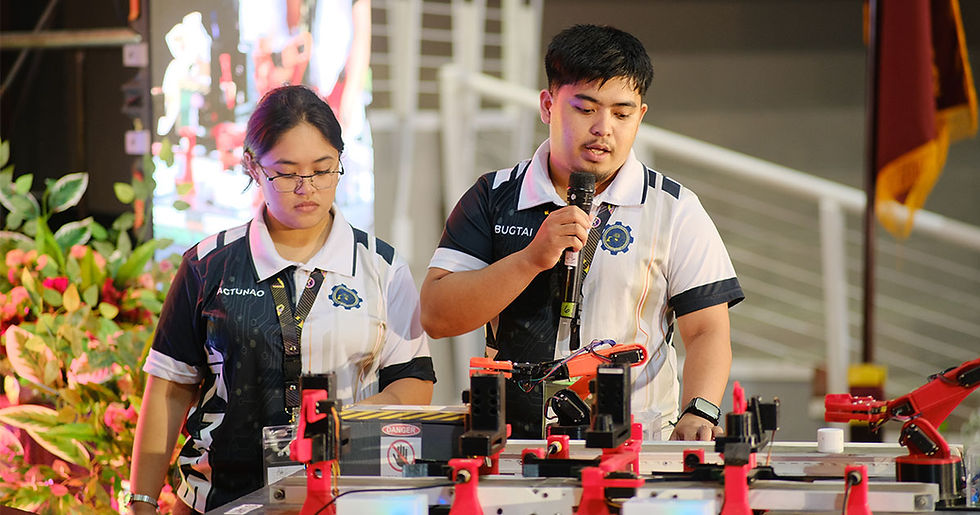Building a future and keeping it clean in Kakuma
- Field Ready
- May 9, 2022
- 3 min read
Finding ways to survive as a refugee is always a challenge - and even more difficult during a pandemic. But our "Protecting The Frontline" program to help stem COVID-19 spread has not only helped displaced people in Kenya's Kakuma Refugee Camp survive - it's helping them stay safe and even thrive.
We've partnered with Needs List and Humanitarian OpenStreetMap Team workers to help match frontline workers in Bangladesh, Kenya, Iraq and Uganda who need personal protective equipment with local manufacturers in those countries who can make it for them. With support from Creating Hope in Conflict: a Humanitarian Grand Challenge, the program has already received more than 500,000 orders and helped protect more than 250,000 frontline workers who are working to prevent disease spread.
In Kakuma, the program helps participants on multiple levels - in addition to helping prevent COVID-19 and other diseases, it also provides job training and income opportunities for refugees and promotes recycling and sustainable development.
On the sustainability front, we're working with the Fraternity For Development Integrated (FRADI) to turn waste plastic into protective face shields. And the benefits are many, said Raphael Besemi Ng of FRADI.
"We're clearing the camp and also cleaning Kakuma town and Kalubuye, reducing pollution and recycling the plastic waste collected for new products," Besemi said.
"This project enabled us to get more knowledge of recycling and making new products. We're also enabling our trainees to learn how to make these new products so these women will get skills that will help them produce an income. And the shields are a big safety need for frontline workers as well as motorcyclists and machine workers in the camp, so we are protecting them as well."
Training is also a big part of our efforts - and we've been working closely with Kakuma's GLAP Enterprises, which supplies soap and hand sanitizer to local organizations and relief agencies. GLAP Founder and Chief Executive Officer Innocent Havyarimana said in addition to its knowledge sharing, the project's mentoring helps bolster particpants' confidence and sense of self-reliance.

Havyarimana, a former chemist in his native Burundi, said both the project's aim and outcome are deeply gratifying to him.
"We are not only supplying soap and sanitizer to churches, NGOs, organizations and the community to stay healthy, but people are learning how to do this themselves," he said.
In addition to helping GLAP, we're training young people at the camp's Don Bosco Vocational Training Center to build locally made, foot-operated handwashing stations.
"This is very, very important, particularly during the time of COVID-19 and the pandemic," said Ben Mburu, director of the Don Bosco center. "This handwashing station means there is no contact (to practice hygiene), so it makes it safe for people and very effective at preventing disease spread. And the skills being learned in building the handwashing stations are helping these young men create a source of income and livelihood, which they will then also be able to pass on to others and build capacity."
Participants in each of the initiatives are only beginning to see the program's long-term benefits, said Solidarity Initiative For Refugees engineer and trainer Yassir Mohammed. With the high-end 3D printer received from Field Ready, Mohammed said he is training more young people than before to produce face shields for community frontline workers.
"In the first wave of COVID-19, we were not able to access face shields in the community," he said. "We could not make enough. But this printer added to our other two allows a faster production rate to keep more people safe. And people see how they
can use this later (to make additional items) as well."
The project is scheduled to continue this summer. For more information about how to get, make or give PPE for the project, please visit www.makeitlocal.org.

_edited.png)




Comments